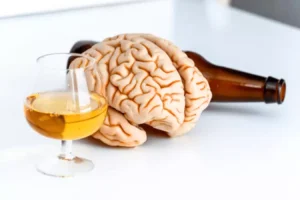Instead, it is a term that was primarily coined by individuals who suffer from and have recovered from alcohol abuse, addiction, and alcohol use disorder. Knowing the difference between alcoholic vs. alcoholism enables you to determine whether seeking professional treatment is necessary. In some cases, alcohol abuse may be managed through lifestyle changes rather than therapy or other treatment methods. In fact, experiencing alcohol withdrawal syndrome is one of the first signs of alcoholism for those who may not have previously seen their drinking habits as a problem.
What Are the Symptoms of Alcohol Use Disorder?

Behavioral therapies, such as Cognitive-Behavioral Therapy (CBT), focus on developing skills to reduce drinking, building a strong support system, setting achievable goals, and managing triggers that could lead to relapse. Discerning the distinctions between alcohol abuse and alcoholism is a vital step towards seeking appropriate treatment and understanding the complexities of each condition. Both can severely impact an individual’s health and wellbeing, but they call for customized approaches when it comes to intervention and recovery. If you or someone you know is dealing with these challenging issues, professional help is key.
Alcohol Use Disorder (AUD) vs. Alcoholism

Shape the future of healthcare and build your career within our diverse teams. When you call our team, you will speak to a Recovery Advocate who will answer any questions and perform a pre-assessment to determine your eligibility for treatment. If eligible, we will create a treatment plan tailored to your specific needs. If The Recovery Village is not the right fit for you or your loved one, we will help refer you to a facility that is. American Addiction Centers (AAC) is committed to delivering original, truthful, accurate, unbiased, and medically current information. We strive to create content that is clear, concise, and easy to understand.
Distinguishing Symptoms of Alcohol Abuse from Alcoholism
A person struggling with alcohol dependence will usually drink daily and need help to stop drinking. Some characteristics of alcohol abuse include binge drinking or heavy drinking. Binge drinking is the consumption of multiple alcohol beverages (five or more for men, four or more for women) within a two-hour period.
- If you abstain from drinking for a few days and experience anxiety, depression, headaches, insomnia, or nausea, there’s a possibility you’re suffering from alcohol-related withdrawals.
- We offer inpatient detox programs with medical support to assist with the withdrawal process.
- Excessive alcohol use is a leading preventable cause of death in the United States and contributes substantially to societal costs.
- Symptoms of withdrawal include headaches, nausea, tremors, and in severe cases, hallucinations and seizures.
- They might also ask if their patients need help in cutting back on drinking.
- If your pattern of drinking results in repeated significant distress and problems functioning in your daily life, you likely have alcohol use disorder.
Alcoholism, also known as Alcohol use disorder (AUD), is a chronic brain disease characterized by an inability to control or abstain from alcohol despite adverse social, occupational, or health consequences. It is recognized by patterns of compulsive alcohol use, a lack of control over alcohol intake, and a negative emotional state when not using. Symptoms include a strong distinguish between alcohol abuse and alcoholism craving for alcohol, continued use despite recurrent problems resulting from drinking, and the development of tolerance or withdrawal symptoms. Alcohol use disorder (AUD) is the term used by medical professionals to describe individuals who suffer from an addiction to alcohol. Even then, people with an alcohol use disorder can suffer from varying problems with alcohol.


Although these terms are often used interchangeably, they have distinct differences. It’s possible to abuse alcohol without being an alcoholic, while alcoholism typically involves an addiction to the substance. Alcoholics depend on alcohol to function in https://ecosoberhouse.com/ their daily lives, while alcohol abusers may not drink daily but simply develop unhealthy habits surrounding alcohol consumption. If you’re worried about your drinking habits or witnessing concerning alcohol consumption in a loved one, you’re not alone.
- According to the DSM-IV, an alcohol use disorder is clinically defined as, “a problematic pattern of alcohol use leading to clinically significant impairment or distress”.
- While the above metrics provided by the NIAAA can be used to measure the level of abuse taking place, any amount of excessive alcohol consumption is a problem.
- Mutual-support groups provide peer support for stopping or reducing drinking.
- However, they were distinctively different diagnoses until the most recent edition of the Diagnostic and Statistical Manual of Mental Disorders-IV (DSM-IV) was published in 2013.
- If you’re having thoughts of hurting yourself or ending your life, know that you’re not alone.
Alcohol Use Disorder: Symptoms, Treatment & Screening
- Group meetings are available in most communities at low or no cost, and at convenient times and locations—including an increasing presence online.
- There are two types of alcohol-related conditions that involve drinking more than what is considered moderate.
- A healthcare provider can offer the most appropriate treatment options tailored to individual needs.
- A heavy drinking binge may even cause a life-threatening coma or death.
- In some people, the initial reaction may feel like an increase in energy.
